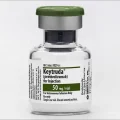Advocacy Group Urges Pfizer to Sell More COVID Pills to Developing Countries

NEW YORK (Reuters) – An influential consumer advocacy group is pressing Pfizer Inc to supply more of its new COVID-19 pill Paxlovid to developing countries this year, concerned that access to the treatment will mirror inequalities in vaccines.
Public Citizen sent a letter to Pfizer Chief Executive Albert Bourla on Monday, asking the drugmaker to set aside at least two-thirds of its supply this year for developing countries at a reasonable price.
Peter Maybarduk, director of Public Citizen’s Access to Medicines program, said the letter was the opening salvo of what he expects will be a year-long campaign by the group.
“This is going to be one of the top access to medicines issues of the coming year. It’s going to be a tremendously discouraging repeat of vaccine inequity, at least initially, and many of us will be working to mitigate that,” Maybarduk said.
Pfizer’s Paxlovid is expected to be a key tool in treating COVID-19 after a clinical trial showed that it reduced hospitalizations in high-risk patients by around 90%. The results were significantly better than those from a clinical trial of Merck Inc’s rival oral antiviral Molnupiravir.
But supply of Paxlovid is extremely limited in the short term. Pfizer has said it can produce 120 million courses of treatment this year, but that falls well short of the company’s estimate of the 2022 market for antiviral pills of 250 million people globally.
The United States has already agreed to buy 20 million courses of the treatment this year, paying Pfizer more than $10.5 billion for the pills.
Pfizer confirmed that the company had received the letter, but declined further comment. The drugmaker’s revenue in 2022 is expected to top $100 billion, according to analyst estimates, more than half of that from sales of Paxlovid and its COVID-19 vaccine.
The company has not disclosed how many courses of Paxlovid it expects to sell to low- and middle-income countries through a tiered system in which lower-income countries pay less than upper-middle income and high-income countries.
Pfizer also will allow generic manufacturers to supply the pills in low and middle countries representing 48% of the world’s population. But the company does not expect those generic companies to be able to provide significant supply until 2023.
Public Citizen also called on Pfizer to help accelerate the entry of generic manufacturers by providing deeper technical assistance and sharing regulatory information, and to expand the number of countries in which generic manufacturers would be allowed to sell the drug.
Vaccine supplies to poorer nations were very limited through most of 2022 because of lack of vaccines, as wealthier states secured most of the doses initially available.
Shipments have increased substantially in recent months, allowing the COVAX global vaccine sharing program to reach 1 billion doses shipped to 144 countries.
Source: Read Full Article




